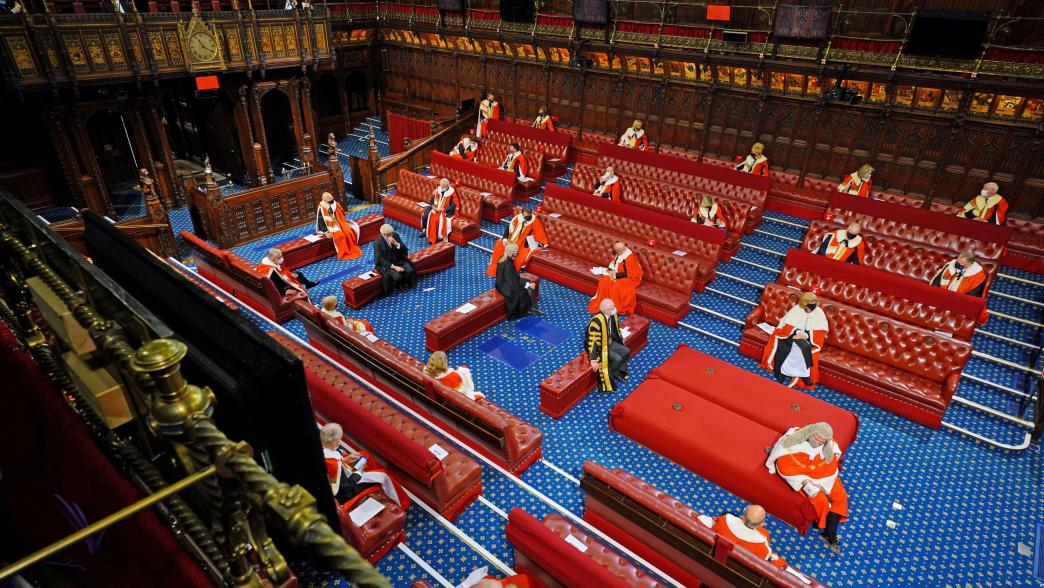
Who is the current Lord Speaker?
Lord McFall is the current Lord Speaker and has held the role since May 2021. He is the fourth person to occupy the position, following Baroness Hayman (2006–11), Baroness D’Souza (2011–16), and Lord Fowler (2016-2021).
Lord Speakers are elected for terms of up to five years and cannot serve more than two terms in the role.
What is the role of the Lord Speaker?
The position of Lord Speaker was established through the Constitutional Reform Act 2005 and did not come into operation until 2006 when the first Lord Speaker, Baroness Hayman, was elected. Before the Lord Speaker role was created, debate in the Lords was overseen by the Lord Chancellor.
The Lord Speaker presides over the running of the House of Lords, meaning procedural, administrative, and ceremonial duties.
Procedurally, the Lord Speaker chairs debate in the House, seated on the ‘woolsack’. However, this role is less interventionist than that of the Speaker of the House of Commons. For example, the Lord Speaker does not decide who speaks, nor do they have the power to decide which amendments to legislation are discussed. They also do not have the power to call peers to order in the way that the Commons Speaker can. This is because the House of Lords, unlike the Commons, is a self-regulating chamber: peers decide how debate unfolds among themselves. The Lord Speaker’s procedural role is more one of guidance, including by reminding peers of the Lords’ rules, or standing orders—though they are not the final arbiter of these rules.
However, the Lords Speaker does still have some procedural power. They are able to call votes, and they are also able to grant Private Notice Questions—questions to ministers on important and topical matters, which are the equivalent of Urgent Questions in the House of Commons.
Administratively, the Lord Speaker chairs the House of Lords Commission, which sets the overall direction of the Lords administration—the permanent staff who help the House of Lords to function. The Lord Speaker is also responsible for security around the Lords’ parts of the parliamentary estate.
The Lord Speaker also has a ceremonial role. This includes representing the House of Lords at major national and international events—for example, on Remembrance Sunday—and taking part in important occasions such as the State Opening of Parliament.
Is the Lord Speaker allowed to vote?
No. Once elected, the Lord Speaker is expected to be politically impartial, and they do not participate in votes. Unlike the Commons Speaker, they have no power to break tied votes.
How is the Lord Speaker elected?
Elections for the Lord Speaker must be held at least every five years. If a Lord Speaker decides to leave their role before their full term is up—or dies in the post—an election to choose their successor must be held within three months.
Not all members are eligible to stand for election. Peers who are on a leave of absence from the House; are suspended; or who are legally barred from actively participating in the House’s business (for example, because they are sitting judges) are not able to stand. Neither are peers who joined the Upper House, and took their oath, in the current Parliament.
Once an election is called, candidates must register their interest and be proposed and seconded by other members of the House of Lords. They are able to set out a short statement—of no more than 75 words—in support of their candidacy. All members of the Lords then receive a list of the candidates, together with further information about them—including their supporting statement, record of their service in Parliament, and their declaration in the formal register of interests. Hustings, where peers have a chance to hear from the candidates, may also be held.
The alternative vote system is used in the election. This means that peers rank the candidates by order of preference. Initially, only the first preferences on ballot papers are counted. If any candidate receives more than 50% of the votes, they are automatically elected. If this does not happen, then the candidate with the fewest votes is eliminated and second preferences are taken into account. This process continues until a candidate receives 50% of votes.
Voting usually takes place in person using ballot papers, though peers can request postal ballots. In the 2021 election, because of the coronavirus pandemic, voting took place remotely between 13 and 15 April, using either electronic voting or postal votes.
Is the Lord Speaker paid?
Yes. In recognition of the role that the Lord Speaker plays in helping the House of Lords perform its business, the Lord Speaker is entitled to receive a salary. In the 2019/20 financial year, the Lord Speaker was paid £104,360. This is higher than the salary of the Commons Speaker (£78,258 in 2019/20), though the Commons Speaker additionally receives a standard MPs’ salary, meaning that their total compensation is higher than their Lords counterpart.
The Lord Speaker—and other salaried office-holders in the House of Lords, including ministers—are not entitled to claim the daily attendance allowance that other peers are able to receive.
Does the Lord Speaker have any deputies?
Yes. The Lord Speaker has a Senior Deputy Speaker, who in turn is assisted by a Principal Deputy Chairman of Committees. There is also a panel of several Lords Deputy Speakers. All of these deputies can preside over debates when the Lord Speaker isn’t present. This is usually done according to a rota.
Unlike the Lord Speaker—and unlike Commons Deputy Speakers—deputies in the Lords are permitted to take part in debates and votes (even while presiding).
- Keywords
- Constitutional reform
- Position
- Speaker of the House of Lords
- Legislature
- House of Lords
- Publisher
- Institute for Government